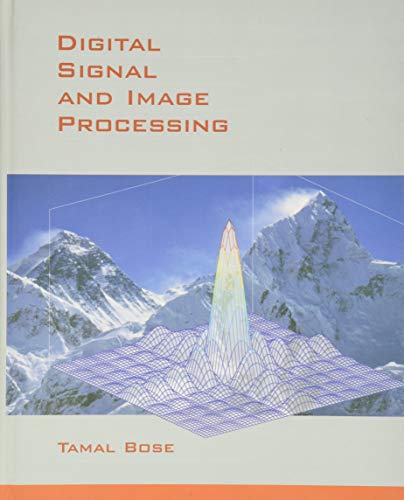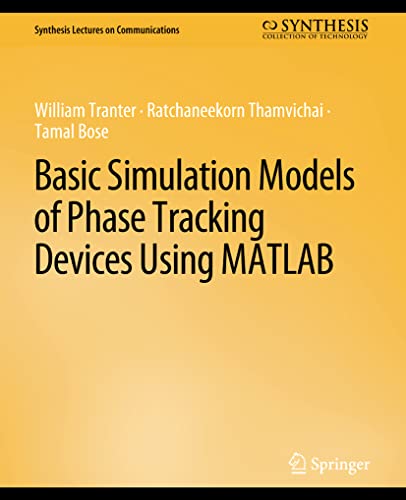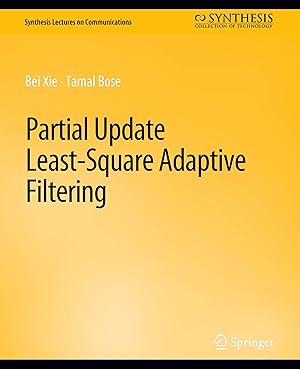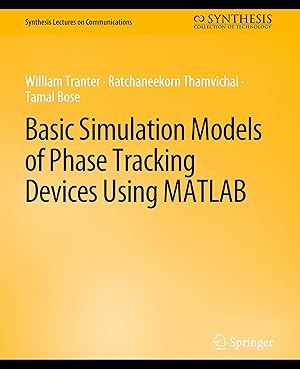Bose Tamal (25 results)
FeedbackSearch filters
Product Type
- All Product Types
- Books (25)
- Magazines & Periodicals (No further results match this refinement)
- Comics (No further results match this refinement)
- Sheet Music (No further results match this refinement)
- Art, Prints & Posters (No further results match this refinement)
- Photographs (No further results match this refinement)
- Maps (No further results match this refinement)
- Manuscripts & Paper Collectibles (No further results match this refinement)
Condition Learn more
- New (19)
- As New, Fine or Near Fine (2)
- Very Good or Good (3)
- Fair or Poor (1)
- As Described (No further results match this refinement)
Binding
Collectible Attributes
- First Edition (1)
- Signed (No further results match this refinement)
- Dust Jacket (1)
- Seller-Supplied Images (9)
- Not Print on Demand (18)
Language (1)
Free Shipping
Seller Location
Seller Rating
-
Hardcover. Condition: Fair. No Jacket. Readable copy. Pages may have considerable notes/highlighting. ~ ThriftBooks: Read More, Spend Less 2.9.
-
Basic Simulation Models of Phase Tracking Devices Using MATLAB (Synthesis Lectures on Communications)
Published by Morgan and Claypool Publishers, 2010
ISBN 10: 160845259X ISBN 13: 9781608452590
Language: English
Seller: suffolkbooks, Center moriches, NY, U.S.A.
paperback. Condition: Very Good. Fast Shipping - Safe and Secure 7 days a week!
-
Basic Simulation Models of Phase Tracking Devices Using MATLAB (Synthesis Lectures on Communications)
Seller: Lucky's Textbooks, Dallas, TX, U.S.A.
US$ 41.57
Convert currencyUS$ 3.99 shipping within U.S.A.Quantity: Over 20 available
Add to basketCondition: New.
-
US$ 26.25
Convert currencyUS$ 20.21 shipping from India to U.S.A.Quantity: 1 available
Add to basketSoft cover. Condition: New. Dust Jacket Condition: New. 1st Edition. Introducing the first text to integrate the topics of digital signal processing DSP digital image processing DIP and adaptive signal processing ASP Digital Signal and Image Processing helps students develop a well rounded understanding of these key areas 720 pp.
-
Basic Simulation Models of Phase Tracking Devices Using MATLAB (Synthesis Lectures on Communications)
Seller: California Books, Miami, FL, U.S.A.
Condition: New.
-
US$ 44.64
Convert currencyUS$ 2.64 shipping within U.S.A.Quantity: Over 20 available
Add to basketCondition: As New. Unread book in perfect condition.
-
Basic Simulation Models of Phase Tracking Devices Using MATLAB (Synthesis Lectures on Communications)
Seller: Books Puddle, New York, NY, U.S.A.
Condition: New. 1st edition NO-PA16APR2015-KAP.
-
Partial Update Least-Square Adaptive Filtering (Synthesis Lectures on Communications)
Seller: Ria Christie Collections, Uxbridge, United Kingdom
US$ 43.80
Convert currencyUS$ 16.00 shipping from United Kingdom to U.S.A.Quantity: Over 20 available
Add to basketCondition: New. In.
-
US$ 57.18
Convert currencyUS$ 2.64 shipping within U.S.A.Quantity: Over 20 available
Add to basketCondition: New.
-
Basic Simulation Models of Phase Tracking Devices Using MATLAB (Synthesis Lectures on Communications)
Seller: Ria Christie Collections, Uxbridge, United Kingdom
US$ 45.58
Convert currencyUS$ 16.00 shipping from United Kingdom to U.S.A.Quantity: Over 20 available
Add to basketCondition: New. In.
-
Partial Update Least-Square Adaptive Filtering (Synthesis Lectures on Communications)
Seller: Books Puddle, New York, NY, U.S.A.
Condition: New. 1st edition NO-PA16APR2015-KAP.
-
Partial Update Least-Square Adaptive Filtering
Seller: GreatBookPricesUK, Woodford Green, United Kingdom
US$ 43.77
Convert currencyUS$ 20.03 shipping from United Kingdom to U.S.A.Quantity: Over 20 available
Add to basketCondition: New.
-
Partial Update Least-Square Adaptive Filtering
Seller: GreatBookPricesUK, Woodford Green, United Kingdom
US$ 49.65
Convert currencyUS$ 20.03 shipping from United Kingdom to U.S.A.Quantity: Over 20 available
Add to basketCondition: As New. Unread book in perfect condition.
-
Partial Update Least-Square Adaptive Filtering
Published by Springer International Publishing, 2014
ISBN 10: 3031005538 ISBN 13: 9783031005534
Language: English
Seller: AHA-BUCH GmbH, Einbeck, Germany
US$ 42.00
Convert currencyUS$ 33.73 shipping from Germany to U.S.A.Quantity: 1 available
Add to basketTaschenbuch. Condition: Neu. Druck auf Anfrage Neuware - Printed after ordering - Adaptive filters play an important role in the fields related to digital signal processing and communication, such as system identification, noise cancellation, channel equalization, and beamforming. In practical applications, the computational complexity of an adaptive filter is an important consideration. The Least Mean Square (LMS) algorithm is widely used because of its low computational complexity ($O(N)$) and simplicity in implementation. The least squares algorithms, such as Recursive Least Squares (RLS), Conjugate Gradient (CG), and Euclidean Direction Search (EDS), can converge faster and have lower steady-state mean square error (MSE) than LMS. However, their high computational complexity ($O(N^2)$) makes them unsuitable for many real-time applications. A well-known approach to controlling computational complexity is applying partial update (PU) method to adaptive filters. A partial update method can reduce the adaptive algorithm complexity by updating part of the weight vector instead of the entire vector or by updating part of the time. In the literature, there are only a few analyses of these partial update adaptive filter algorithms. Most analyses are based on partial update LMS and its variants. Only a few papers have addressed partial update RLS and Affine Projection (AP). Therefore, analyses for PU least-squares adaptive filter algorithms are necessary and meaningful.This monograph mostly focuses on the analyses of the partial update least-squares adaptive filter algorithms. Basic partial update methods are applied to adaptive filter algorithms including Least Squares CMA (LSCMA), EDS, and CG. The PU methods are also applied to CMA1-2 and NCMA to compare with the performance of the LSCMA. Mathematical derivation and performance analysis are provided including convergence condition, steady-state mean and mean-square performance for a time-invariant system. The steady-state mean and mean-square performance are also presented for a time-varying system. Computational complexity is calculated for each adaptive filter algorithm. Numerical examples are shown to compare the computational complexity of the PU adaptive filters with the full-update filters. Computer simulation examples, including system identification and channel equalization, are used to demonstrate the mathematical analysis and show the performance of PU adaptive filter algorithms. They also show the convergence performance of PU adaptive filters. The performance is compared between the original adaptive filter algorithms and different partial-update methods. The performance is also compared among similar PU least-squares adaptive filter algorithms, such as PU RLS, PU CG, and PU EDS. In addition to the generic applications of system identification and channel equalization, two special applications of using partial update adaptive filters are also presented. One application uses PU adaptive filters to detect Global System for Mobile Communication (GSM) signals in a local GSM system using the Open Base Transceiver Station (OpenBTS) and Asterisk Private Branch Exchange (PBX). The other application uses PU adaptive filters to do image compression in a system combining hyperspectral image compression and classification.
-
US$ 31.08
Convert currencyUS$ 71.04 shipping from Germany to U.S.A.Quantity: 1 available
Add to baskethardcover. Condition: Gut. 720 Seiten; 9780471327271.3 Gewicht in Gramm: 2.
-
Partial Update Least-Square Adaptive Filtering
Published by Springer International Publishing, Springer International Publishing Mai 2014, 2014
ISBN 10: 3031005538 ISBN 13: 9783031005534
Language: English
Seller: buchversandmimpf2000, Emtmannsberg, BAYE, Germany
US$ 42.00
Convert currencyUS$ 63.53 shipping from Germany to U.S.A.Quantity: 2 available
Add to basketTaschenbuch. Condition: Neu. Neuware -Adaptive filters play an important role in the fields related to digital signal processing and communication, such as system identification, noise cancellation, channel equalization, and beamforming. In practical applications, the computational complexity of an adaptive filter is an important consideration. The Least Mean Square (LMS) algorithm is widely used because of its low computational complexity ($O(N)$) and simplicity in implementation. The least squares algorithms, such as Recursive Least Squares (RLS), Conjugate Gradient (CG), and Euclidean Direction Search (EDS), can converge faster and have lower steady-state mean square error (MSE) than LMS. However, their high computational complexity ($O(N^2)$) makes them unsuitable for many real-time applications. A well-known approach to controlling computational complexity is applying partial update (PU) method to adaptive filters. A partial update method can reduce the adaptive algorithm complexity by updating part of the weight vector instead of the entire vector or by updating part of the time. In the literature, there are only a few analyses of these partial update adaptive filter algorithms. Most analyses are based on partial update LMS and its variants. Only a few papers have addressed partial update RLS and Affine Projection (AP). Therefore, analyses for PU least-squares adaptive filter algorithms are necessary and meaningful.This monograph mostly focuses on the analyses of the partial update least-squares adaptive filter algorithms. Basic partial update methods are applied to adaptive filter algorithms including Least Squares CMA (LSCMA), EDS, and CG. The PU methods are also applied to CMA1-2 and NCMA to compare with the performance of the LSCMA. Mathematical derivation and performance analysis are provided including convergence condition, steady-state mean and mean-square performance for a time-invariant system. The steady-state mean and mean-square performance are also presented for a time-varying system. Computational complexity is calculated for each adaptive filter algorithm. Numerical examples are shown to compare the computational complexity of the PU adaptive filters with the full-update filters. Computer simulation examples, including system identification and channel equalization, are used to demonstrate the mathematical analysis and show the performance of PU adaptive filter algorithms. They also show the convergence performance of PU adaptive filters. The performance is compared between the original adaptive filter algorithms and different partial-update methods. The performance is also compared among similar PU least-squares adaptive filter algorithms, such as PU RLS, PU CG, and PU EDS. In addition to the generic applications of system identification and channel equalization, two special applications of using partial update adaptive filters are also presented. One application uses PU adaptive filters to detect Global System for Mobile Communication (GSM) signals in a local GSM system using the Open Base Transceiver Station (OpenBTS) and Asterisk Private Branch Exchange (PBX). The other application uses PU adaptive filters to do image compression in a system combining hyperspectral image compression and classification.Springer Verlag GmbH, Tiergartenstr. 17, 69121 Heidelberg 120 pp. Englisch.
-
Basic Simulation Models of Phase Tracking Devices Using MATLAB (Synthesis Lectures on Communications)
Published by Morgan and Claypool Publishers, 2010
ISBN 10: 160845259X ISBN 13: 9781608452590
Language: English
Seller: dsmbooks, Liverpool, United Kingdom
US$ 116.37
Convert currencyUS$ 33.38 shipping from United Kingdom to U.S.A.Quantity: 1 available
Add to basketPaperback. Condition: Very Good. Very Good. book.
-
Basic Simulation Models of Phase Tracking Devices Using MATLAB (Synthesis Lectures on Communications)
Seller: dsmbooks, Liverpool, United Kingdom
US$ 131.85
Convert currencyUS$ 33.38 shipping from United Kingdom to U.S.A.Quantity: 1 available
Add to basketpaperback. Condition: New. New. SHIPS FROM MULTIPLE LOCATIONS. book.
-
Basic Simulation Models of Phase Tracking Devices Using MATLAB (Synthesis Lectures on Communications)
Seller: Majestic Books, Hounslow, United Kingdom
US$ 54.36
Convert currencyUS$ 8.68 shipping from United Kingdom to U.S.A.Quantity: 4 available
Add to basketCondition: New. Print on Demand.
-
Partial Update Least-Square Adaptive Filtering
Published by Springer International Publishing Mai 2014, 2014
ISBN 10: 3031005538 ISBN 13: 9783031005534
Language: English
Seller: BuchWeltWeit Ludwig Meier e.K., Bergisch Gladbach, Germany
US$ 42.00
Convert currencyUS$ 26.57 shipping from Germany to U.S.A.Quantity: 2 available
Add to basketTaschenbuch. Condition: Neu. This item is printed on demand - it takes 3-4 days longer - Neuware -Adaptive filters play an important role in the fields related to digital signal processing and communication, such as system identification, noise cancellation, channel equalization, and beamforming. In practical applications, the computational complexity of an adaptive filter is an important consideration. The Least Mean Square (LMS) algorithm is widely used because of its low computational complexity ($O(N)$) and simplicity in implementation. The least squares algorithms, such as Recursive Least Squares (RLS), Conjugate Gradient (CG), and Euclidean Direction Search (EDS), can converge faster and have lower steady-state mean square error (MSE) than LMS. However, their high computational complexity ($O(N^2)$) makes them unsuitable for many real-time applications. A well-known approach to controlling computational complexity is applying partial update (PU) method to adaptive filters. A partial update method can reduce the adaptive algorithm complexity by updating part of the weight vector instead of the entire vector or by updating part of the time. In the literature, there are only a few analyses of these partial update adaptive filter algorithms. Most analyses are based on partial update LMS and its variants. Only a few papers have addressed partial update RLS and Affine Projection (AP). Therefore, analyses for PU least-squares adaptive filter algorithms are necessary and meaningful.This monograph mostly focuses on the analyses of the partial update least-squares adaptive filter algorithms. Basic partial update methods are applied to adaptive filter algorithms including Least Squares CMA (LSCMA), EDS, and CG. The PU methods are also applied to CMA1-2 and NCMA to compare with the performance of the LSCMA. Mathematical derivation and performance analysis are provided including convergence condition, steady-state mean and mean-square performance for a time-invariant system. The steady-state mean and mean-square performance are also presented for a time-varying system. Computational complexity is calculated for each adaptive filter algorithm. Numerical examples are shown to compare the computational complexity of the PU adaptive filters with the full-update filters. Computer simulation examples, including system identification and channel equalization, are used to demonstrate the mathematical analysis and show the performance of PU adaptive filter algorithms. They also show the convergence performance of PU adaptive filters. The performance is compared between the original adaptive filter algorithms and different partial-update methods. The performance is also compared among similar PU least-squares adaptive filter algorithms, such as PU RLS, PU CG, and PU EDS. In addition to the generic applications of system identification and channel equalization, two special applications of using partial update adaptive filters are also presented. One application uses PU adaptive filters to detect Global System for Mobile Communication (GSM) signals in a local GSM system using the Open Base Transceiver Station (OpenBTS) and Asterisk Private Branch Exchange (PBX). The other application uses PU adaptive filters to do image compression in a system combining hyperspectral image compression and classification. 120 pp. Englisch.
-
Partial Update Least-Square Adaptive Filtering (Synthesis Lectures on Communications)
Seller: Majestic Books, Hounslow, United Kingdom
US$ 60.19
Convert currencyUS$ 8.68 shipping from United Kingdom to U.S.A.Quantity: 4 available
Add to basketCondition: New. Print on Demand.
-
Basic Simulation Models of Phase Tracking Devices Using MATLAB (Synthesis Lectures on Communications)
Seller: Biblios, Frankfurt am main, HESSE, Germany
US$ 59.64
Convert currencyUS$ 11.49 shipping from Germany to U.S.A.Quantity: 4 available
Add to basketCondition: New. PRINT ON DEMAND.
-
Partial Update Least-Square Adaptive Filtering (Synthesis Lectures on Communications)
Seller: Biblios, Frankfurt am main, HESSE, Germany
US$ 65.85
Convert currencyUS$ 11.49 shipping from Germany to U.S.A.Quantity: 4 available
Add to basketCondition: New. PRINT ON DEMAND.
-
Partial Update Least-Square Adaptive Filtering
Published by Springer, Berlin|Springer International Publishing|Morgan & Claypool|Springer, 2014
ISBN 10: 3031005538 ISBN 13: 9783031005534
Language: English
Seller: moluna, Greven, Germany
US$ 38.89
Convert currencyUS$ 56.59 shipping from Germany to U.S.A.Quantity: Over 20 available
Add to basketCondition: New. Dieser Artikel ist ein Print on Demand Artikel und wird nach Ihrer Bestellung fuer Sie gedruckt. Adaptive filters play an important role in the fields related to digital signal processing and communication, such as system identification, noise cancellation, channel equalization, and beamforming. In practical applications, the computational complexity o.
-
Basic Simulation Models of Phase Tracking Devices Using MATLAB
Published by Springer, Berlin|Springer International Publishing|Morgan & Claypool|Springer, 2010
ISBN 10: 3031005481 ISBN 13: 9783031005480
Language: English
Seller: moluna, Greven, Germany
US$ 38.89
Convert currencyUS$ 56.59 shipping from Germany to U.S.A.Quantity: Over 20 available
Add to basketCondition: New. Dieser Artikel ist ein Print on Demand Artikel und wird nach Ihrer Bestellung fuer Sie gedruckt. The Phase-Locked Loop (PLL), and many of the devices used for frequency and phase tracking, carrier and symbol synchronization, demodulation, and frequency synthesis, are fundamental building blocks in today s complex communications systems. It is therefore.















